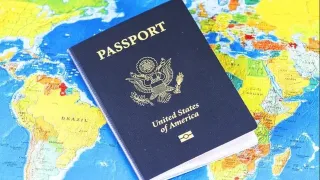Introduction: Many people in America consider Friday the 13th to be unlucky. This superstition is so prevalent that people approach this day with caution, some even avoiding making important decisions. But where did this superstition originate? Why is the combination of the 13th and Friday considered so scary? In this article, we will shed light on the origins of this mysterious superstition, its cultural influence, and interesting facts related to it.
History of Friday the 13th
1. Superstition of the Number 13
The number 13 has long been considered unlucky in Western cultures. One of the main reasons for this is its connection to Christianity. According to the Bible, 13 people were present at Jesus' Last Supper, including Jesus and his 12 disciples. It is believed that the 13th person, Judas Iscariot, betrayed Jesus, leading to his crucifixion. This event linked the number 13 to bad luck.
In addition, 13 is also considered unlucky in ancient myths and stories. For example, in Norse mythology, there is a story in which the 13th guest, Loki (the god of deception), causes chaos at a banquet of 12 gods.
2. Friday is considered unlucky
Friday is also considered unlucky in Christian traditions because it is believed that Jesus was crucified on a Friday, which is known as "Good Friday." Furthermore, Friday has been associated with negative events in some other cultures. For example, in medieval times, criminals were often hanged on Fridays.
3. Combination of Friday and the 13th
When Friday and the 13th coincide, this superstition deepens. By the 19th century, this combination became a symbol of bad luck in the Western world, especially in America. This superstition was further fueled by popular culture, books, and later, films.
Cultural Impact
1. Friday the 13th in Popular Culture
The horror film series Friday the 13th, released in 1980, further strengthened this superstition. In this film, a fictional killer, Jason Voorhees, made this date synonymous with horror. This film associated this date with fear and mystery not only in America but also globally.
2. Economic Impact
Friday the 13th also impacts the American economy. According to some studies, people avoid traveling, shopping, or making large investments on this day. For example, airlines and the hotel industry see a decrease in bookings on this day. According to some estimates, this superstition causes billions of dollars in economic losses in the United States each year.
3. Avoiding 13 in Buildings and Hotels
Many buildings and hotels in the United States avoid naming the 13th floor. Elevators often have a button for the 14th floor directly after the 12th floor. Similarly, some hotels do not have room number 13. This superstition is so deeply ingrained that people try to avoid anything associated with the number 13.
Scientific Perspective and Psychology
Scientifically, there is no solid basis for considering Friday the 13th unlucky. Psychologists believe this superstition is the result of "confirmation bias." People pay more attention to negative events that occur on this day and exaggerate them more than on normal days.
Additionally, this superstition is associated with a psychological phobia called triskaidekaphobia, which refers to a fear of the number 13. Some people even avoid normal activities on this day due to this fear.
Interesting Facts
At least once every year: Friday the 13th occurs at least once every year, and in some years it can occur up to three times.
Different superstitions in other countries: While Friday the 13th is considered unlucky in the United States, in some countries, such as Italy, the 17th is considered unlucky.
13 Clubs: In the late 19th century, some people in the United States formed "13 Clubs" to counter this superstition, where people deliberately dined with 13 people on this day.
Conclusion: The Friday the 13th superstition is a deeply rooted cultural phenomenon in America. Although it has no scientific basis, it profoundly influences people's behavior, the economy, and popular culture. This superstition shows us how the human mind can be influenced by stories, traditions, and fear. The next time this date comes, will you approach it with dread or treat it like a normal day? It's up to you!























